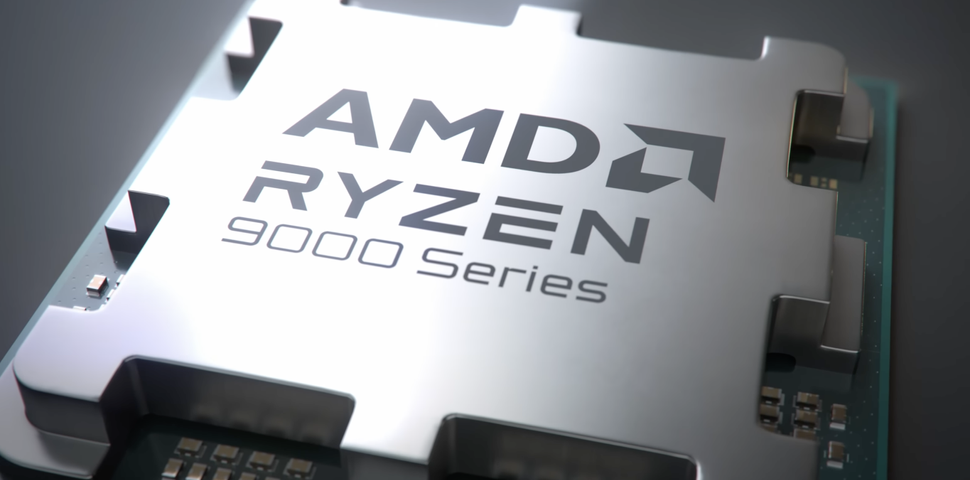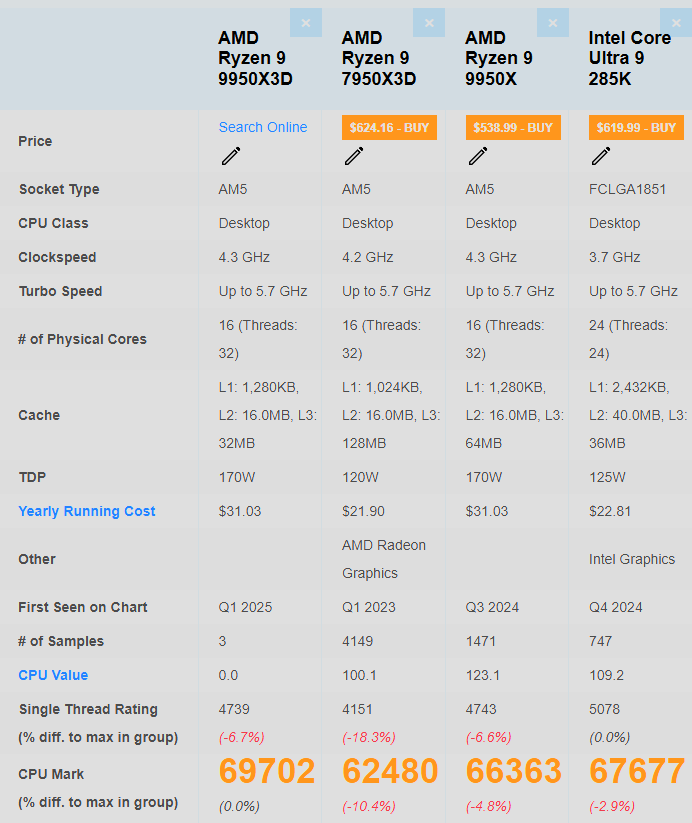
Micron unveils DDR5-9200 memory: 1γ process technology with EUV
February 26, 2025
Intel reaches ‘exciting milestone’ for 18A 1.8nm-class wafers with first run at Arizona fab
March 17, 2025Delivers roughly the same single-threaded performance as its non-X3D counterpart.
AMD's latest additions to its Zen 5 stack include the 16-core Ryzen 9 9950X3D and 12-core 9900X3D, set to launch on March 12. Just days before the retail embargo, a handful of Ryzen 9 9950X3D samples appear to have been tested in PassMark, a benchmarking utility (via x86deadandback on X). Based on the first few sets of runs, the 9950X3D keeps pace with its non-X3D counterpart in single-threaded performance, while landing solid wins against its last-gen counterpart in PassMark. Remember that these benchmarks may not accurately reflect the CPU's performance in all real-world applications.
Coming in at $699, the Ryzen 9 9950X3D retains its predecessor's specifications with a 16-core and 32-thread layout. All Ryzen 9000X3D chips integrate the 2nd generation of AMD's V-Cache technology, under which the SRAM block is placed below the heat-producing CCDs for more thermal headroom. This is reflected through the elevated clock speeds and higher power limits, with the 9950X3D rated at 170W.
CPU Mark, which is a proprietary set of benchmarks used to gauge a processor's performance, sees the Ryzen 9 9950X3D lead the pack, boasting an 11% lead against the Ryzen 9 7950X3D. From the looks of it, CPU Mark can leverage the extra L3 cache, as a result of which the 9950X3D ends up 5% ahead of the 9950X. This ability to extract more performance from added cache is not code-agnostic, so don't expect a similar outcome in every scenario.
The Ryzen 9 9950X3D and 9900X3D are set to hit shelves starting March 12, at $699 and $599 respectively. While AMD hasn't promised widespread availability, expanding the X3D lineup should help alleviate supply constraints on the popular Ryzen 7 9800X3D.


